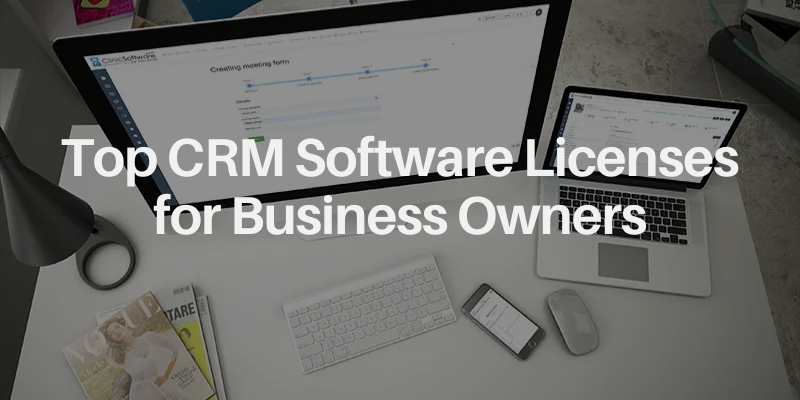Unlock the Full Potential of Your Clinic with Clinic Software CRM
Clinic software has become an essential tool for medical clinics and hospitals to manage their operations efficiently. With the help of clinic software, businesses can streamline their processes, improve patient satisfaction, and increase revenue. In this article, we will explore the key features and benefits of clinic software CRM.
Key Points
1. Simplified Appointment Scheduling
Clinic software CRM allows patients to easily schedule appointments online, reducing wait times and increasing patient satisfaction. This feature is particularly beneficial for clinics with multiple locations or those that have a high volume of patients. By enabling patients to book appointments at their convenience, clinic software reduces the need for phone calls and walk-ins, saving time and resources.
With Clinic Software CRM's online appointment scheduling system, patients can easily browse available time slots, select a date and time that suits them, and even receive reminders about upcoming appointments. This streamlined process ensures that patients are seen promptly, reducing the risk of no-shows and improving overall clinic productivity.
2. Improved Inventory Management
Clinic software CRM helps clinics manage their inventory more efficiently by tracking stock levels, monitoring usage patterns, and automatically generating orders for supplies and medications. This feature is particularly useful for clinics that rely on specialized equipment or consumables to treat patients.
By automating inventory management, clinic software reduces the risk of stockouts, overstocking, and expired products. This ensures that clinics always have the necessary materials on hand to provide excellent patient care while minimizing waste and costs.
3. Streamlined Employee Scheduling
Clinic software CRM simplifies employee scheduling by automating tasks such as shift creation, time-off requests, and payroll processing. This feature is particularly beneficial for clinics with multiple locations or those that have a large workforce.
By streamlining employee scheduling, clinic software reduces the administrative burden on HR teams, ensures accurate payrolls, and improves staff morale by providing more predictable work schedules.
4. Enhanced Customer Relationships
Clinic software CRM helps clinics build stronger relationships with patients through personalized communication, automated reminders, and patient engagement tools. This feature is particularly useful for clinics that value customer loyalty and retention.
By fostering a more personal connection with patients, clinic software CRM enables clinics to provide better care, improve health outcomes, and increase patient satisfaction ratings.
5. Real-Time Reporting and Analytics
Clinic software CRM provides real-time reporting and analytics that help clinics track key performance indicators (KPIs), monitor progress toward goals, and make data-driven decisions. This feature is particularly beneficial for clinics that need to optimize their operations or improve patient outcomes.
By leveraging real-time insights, clinic software CRM enables clinics to identify areas for improvement, optimize resource allocation, and drive business growth through informed decision-making.
6. Security and Compliance
Clinic software CRM prioritizes data security and compliance by adhering to industry standards and regulations such as HIPAA. This feature is particularly crucial for clinics that handle sensitive patient information.
By ensuring the confidentiality, integrity, and availability of patient data, clinic software CRM reduces the risk of cyber threats, protects sensitive information, and maintains regulatory compliance.
7. Scalability and Flexibility
Clinic software CRM offers scalability and flexibility by adapting to changing business needs and growth patterns. This feature is particularly beneficial for clinics that experience rapid expansion or require customization of their software solution.
By scaling with the clinic's growth, Clinic Software CRM ensures a seamless user experience, maintains performance, and continues to innovate features and functionality to support evolving business requirements.
8. Integration with Existing Systems
Clinic software CRM integrates seamlessly with existing systems such as electronic health records (EHRs), practice management systems, and billing software. This feature is particularly useful for clinics that rely on multiple systems to manage their operations.
By integrating Clinic Software CRM with existing systems, clinics can streamline workflows, reduce data entry, and improve overall efficiency by leveraging a single platform for all business needs.
9. Customization and Personalization
Clinic software CRM offers customization and personalization options to meet the unique needs of individual clinics or departments within a larger healthcare organization. This feature is particularly beneficial for clinics that require specialized features or branding.
By tailoring Clinic Software CRM to their specific requirements, clinics can improve user adoption, increase productivity, and enhance overall satisfaction with the software solution.
10. Cost Savings and ROI
Clinic software CRM offers cost savings and return on investment (ROI) through reduced labor costs, improved operational efficiency, and increased revenue generation. This feature is particularly crucial for clinics looking to optimize their budget or improve financial performance.
By implementing Clinic Software CRM, clinics can reduce the time spent on administrative tasks, increase patient satisfaction ratings, and drive business growth while maintaining a strong bottom line.
Conclusion
Clinic software CRM has revolutionized the way medical clinics manage their operations, improve patient care, and drive business growth. By embracing this technology, clinics can simplify appointment scheduling, streamline employee scheduling, enhance customer relationships, and optimize resource allocation, ultimately driving success in today's competitive healthcare landscape.
As the healthcare industry continues to evolve, it is essential for clinics to stay ahead of the curve by adopting innovative solutions like Clinic Software CRM. By doing so, clinics can provide better care, improve health outcomes, and increase revenue while maintaining a strong competitive edge in their market.
In conclusion, Clinic Software CRM offers a comprehensive suite of features and functionality designed to meet the unique needs of medical clinics. By investing in this technology, clinics can drive business growth, improve patient satisfaction ratings, and optimize their operations for long-term success.
What you should do now
- Schedule a Demo to see how Clinic Software can help your team.
- Read more clinic management articles in our blog and play our demos.
- If you know someone who'd enjoy this article, share it with them via Facebook, Twitter, LinkedIn, or email.





